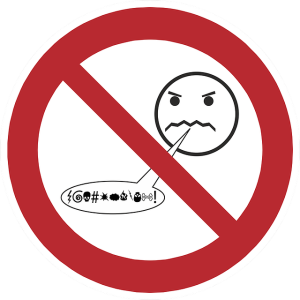Anger control therapy, often court-mandated for individuals with anger-related issues, uses evidence-based techniques like CBT and mindfulness practices to address root causes of anger. This multi-faceted approach aims to prevent criminal behavior, domestic violence, and promote healthier coping mechanisms. Through structured sessions, participants gain insights into triggers, learn emotional regulation skills, and develop tailored conflict resolution strategies for lasting positive change in their personal and professional lives. The role of a therapist is crucial in guiding individuals towards better anger management and improved quality of life.
“Discover the power of court-mandated anger management programs—a structured approach to transforming aggressive impulses. This comprehensive guide explores who benefits from these interventions, from eligible individuals to diverse treatment methods. Uncover the role of therapists in facilitating change and the proven advantages of anger control therapy. Additionally, we delve into potential challenges, offering insights for those navigating this path to emotional regulation.”
Understanding Court-Mandated Anger Management Programs

Court-mandated anger management programs are designed to help individuals who have been involved in legal issues related to anger or aggression learn effective strategies for managing their emotions. These programs recognize that unaddressed anger can lead to recurring criminal behavior, domestic violence, or other harmful outcomes. Anger control therapy involves a range of techniques, from cognitive-behavioral therapy to mindfulness practices and stress management skills. Participants are typically required to attend regular sessions with a qualified therapist, complete assignments, and often face regular monitoring to ensure progress.
The primary goal is not only to help individuals reduce their anger levels but also to understand the root causes behind their anger and develop healthier coping mechanisms. Through education, role-playing, and group discussions, these programs foster an environment where participants can learn from each other, gain insights into their triggers, and practice responding to challenging situations in a calmer manner. The structured nature of court-mandated programs ensures accountability, providing individuals with the support they need to make lasting changes in their lives.
Who Needs Anger Control Therapy? Eligibility Criteria

Anger control therapy is often court-mandated for individuals who have been involved in actions driven by anger, such as assault or domestic violence. This form of therapy is not just for those with severe anger issues; it can benefit anyone struggling to manage their temper effectively. Eligibility criteria vary but typically include a history of angry outbursts or violent behaviour, along with a willingness to participate in the therapeutic process.
The need for anger control therapy may be identified by legal authorities, mental health professionals, or support systems like family and friends. It’s crucial for those who want to avoid legal consequences, improve interpersonal relationships, and lead a more peaceful life. Through structured programmes, individuals learn coping strategies, emotional regulation skills, and conflict resolution techniques tailored to their unique needs.
Types of Anger Management Techniques Used in Therapy

In court-mandated anger management therapy, a variety of techniques are employed to help individuals gain control over their emotions. Cognitive Behavioral Therapy (CBT) is a common approach, focusing on identifying and changing negative thought patterns that contribute to anger. This involves learning to recognize triggers, challenging distorted beliefs, and developing healthier coping strategies. Another effective method is Mindfulness-Based Stress Reduction (MBSR), which teaches individuals to stay present and aware of their feelings without judgment, fostering a sense of calm.
Additionally, techniques like relaxation training, such as deep breathing exercises and progressive muscle relaxation, help individuals reduce physical tension and lower their anger levels. Interpersonal therapy also plays a significant role, focusing on improving communication skills and resolving conflicts constructively. These diverse methods are tailored to meet the unique needs of each individual, ensuring effective anger control therapy.
The Role of a Therapist in Anger Management Treatment

The role of a therapist in anger management treatment is pivotal, acting as a guide and support system for individuals seeking to improve their anger control. Through specialized techniques and strategies, therapists help clients understand the underlying causes of their anger, offering insights that can lead to lasting behavioral changes. They facilitate open dialogue, creating a safe space for clients to express their feelings without fear of judgment, which is essential for processing emotions effectively.
Therapists employ various therapeutic approaches tailored to individual needs, such as cognitive-behavioral therapy (CBT), mindfulness training, and relaxation techniques. These methods empower clients with tools to manage triggers, reframe negative thoughts, and respond calmly in challenging situations. By regular practice and commitment, individuals can develop healthier coping mechanisms, enhance their interpersonal relationships, and overall improve their quality of life.
Benefits and Success Rates of Court-Ordered Anger Control Therapy

Court-mandated anger management, specifically anger control therapy, offers significant benefits for individuals struggling with impulsive and aggressive behavior. This structured approach to treatment provides participants with essential coping strategies to manage their emotions effectively. Through a combination of education, skill-building, and support, anger control therapy empowers individuals to reduce instances of anger and improve their overall well-being.
The success rates of court-ordered anger control therapy are promising. Numerous studies indicate that those who complete the program exhibit lower levels of anger and improved relationship dynamics. Participants often report better stress management, enhanced emotional awareness, and increased satisfaction in both personal and professional spheres. This form of intervention is particularly effective for individuals facing legal consequences related to their anger, helping them turn their lives around and avoid future legal troubles.
Challenges and Considerations for Participants in Anger Management Classes

Participating in court-mandated anger management classes can be a challenging yet transformative experience. Individuals often face significant hurdles, such as resistance to change, fear of confronting emotions, and past experiences that have contributed to their anger issues. Overcoming these challenges requires a high level of self-awareness, commitment, and willingness to engage openly with the process.
Considerations for success in anger control therapy include finding a safe and supportive environment where participants can express themselves honestly without judgment. Group dynamics play a crucial role; peer interactions can foster understanding, accountability, and the development of coping strategies. Additionally, tailored approaches that address underlying causes, such as trauma or stress, are essential for long-term effectiveness. Effective anger management goes beyond mere behavior modification; it’s about cultivating emotional intelligence and healthy expression for sustained personal growth.
